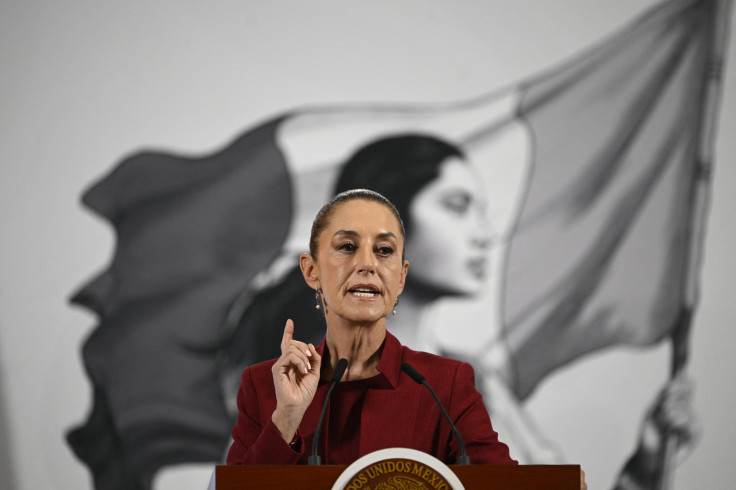
More than a decade after the disappearance of 43 students from a rural teachers college in Ayotzinapa, Guerrero, Mexican authorities are still pursuing justice. According to recent statements by President Claudia Sheinbaum, officials are now seeking the extradition of two individuals linked to the case.
During a recent visit to Mexico by U.S. Secretary of State Marco Rubio, Sheinbaum said she formally requested the extradition of two unnamed individuals described as "priority targets" for Mexico's justice system.
As reported by Infobae México, Sheinbaum cited the emotional weight the case continues to carry in Mexican society as the reason behind the request.
"They are related to the Ayotzinapa case. We had already discussed this with the victims' families," Sheinbaum said. "These are two individuals for whom we are requesting extradition, and I personally brought up the matter with the Secretary of State. It was only these two people, and the request was made because of how sensitive this case is for our country."
Despite her remarks, Sheinbaum did not disclose the names of the individuals. When a reporter asked for them, she turned to Omar García Harfuch, Mexico's top security official, to confirm whether identifying them publicly would be appropriate. He advised against it.
"No," Sheinbaum said. "That's why I asked whether I could say who they are and what case it relates to, because it's important to respect the process."
This was not the first time Sheinbaum said she raised extradition matters during Rubio's visit.
In addition to signing agreements to combat drug trafficking, support economic development, and address shared water resources, Sheinbaum and Rubio also discussed broader extradition efforts. According to Sheinbaum, several other individuals wanted by Mexican authorities were also part of those talks.
"We talked about some targets we want extradited from the United States to Mexico," she said last week. "And whether someone is sent to the U.S. under the National Security Law or through extradition, those are sovereign decisions made in the interest of our country's security and peace."
She emphasized that such decisions are made only after careful review by Mexico's top security institutions.
"This is part of our collaboration," Sheinbaum said, "but the decision is made by the National Security Council based on a risk assessment for our country. There are other cases where an extradition order is already in place, without any legal protections, and it is carried out immediately."
She added that Mexico expects reciprocal cooperation from the United States on cases it considers a priority.
"We are particularly interested in cases that are highly relevant to Mexico, where we are requesting deportation or extradition, just as they do with us," she said.
Ayotzinapa case: 43 students disappeared
The disappearance of 43 students from Guerrero has remained a focal point of public outrage and media attention in Mexico for more than a decade.
On Sept. 26, 2014, students from the Ayotzinapa Rural Teachers' College were traveling from Iguala to Mexico City when their buses were intercepted by municipal police. Since then, their whereabouts have remained unknown.
According to findings from the Comisión para la Verdad y Acceso a la Justicia del Caso Ayotzinapa, members of the Guerreros Unidos cartel were monitoring the buses because the group often used similar vehicles to smuggle drugs into the United States. Cartel members allegedly suspected that rival gang members might have been among the students, prompting them to target the convoy.
Local police stopped the buses and, according to federal investigators, handed the students over to the cartel. The students were allegedly killed, and their bodies were incinerated and discarded.
Later that year, two suspected cartel members confessed to participating in the killings, claiming that police officers from Iguala and Cocula delivered the students to Guerreros Unidos. A text message sent to then-cartel leader Sidronio Casarrubias Salgado reportedly confirmed the bodies were burned and dumped in a river.
Despite the confessions, federal prosecutors later said the claims could not be verified, and the suspects were released.
Guerreros Unidos is a splinter group of the Beltrán Leyva Organization and is primarily active in central Mexico. According to InSight Crime, the group is involved in extortion, kidnapping, and heroin trafficking to the United States.
© 2025 Latin Times. All rights reserved. Do not reproduce without permission.











